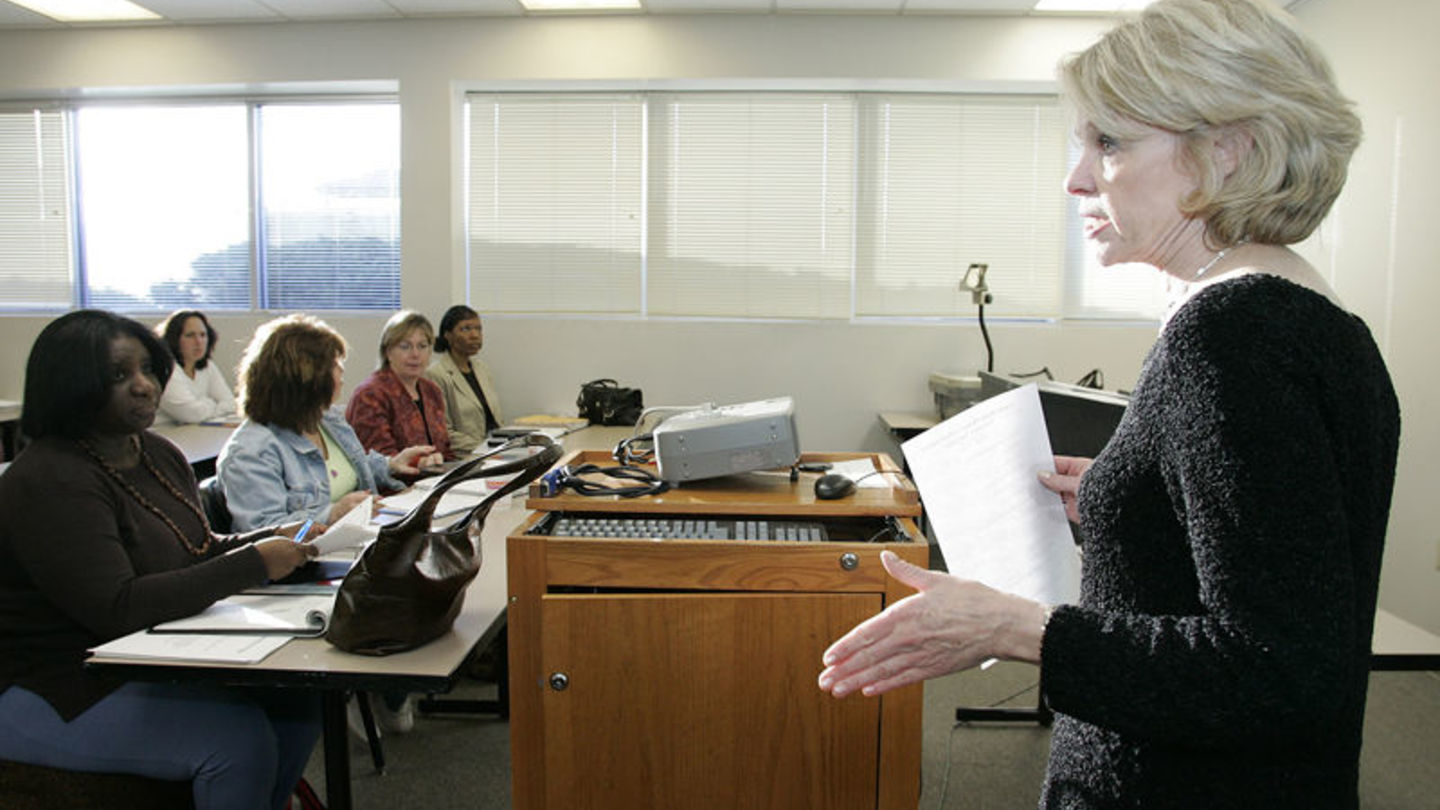
Working from a positive approach. It may sound simple but for decades individuals who worked with families in crisis in the United States approached problems by trying to determine what was "wrong" in an effort to "fix it."
After many years working with families at some of the toughest moments in their lives, Rob Gaskill was looking for a better way to help families achieve their goals and get back on track.
"Having always worked from a deficit model with clients, it was important to me to take a better look at coming from a more strengths-based approach," said Gaskill, 61, who retired in 2008 from a long career as a Parole Officer in Montgomery County only to turn around and begin a new chapter in his life helping families with Family Services of Montgomery County. "To approach clients from what strengths they did have always made good sense, but I wanted to adopt a stronger, more beneficial approach to solving the difficult problems that clients present."
Gaskill discovered the perfect outlet to improve and re-focus his skills with Temple University's Credential for Strengths-based Family Workers (SFW) program. Offered nationally through Temple University Harrisburg, SFW is offered in conjunction with professional partner organizations in 13 states. In Pennsylvania alone, Temple Harrisburg offers SFW at 20 locations and will soon bring the program to Temple University Fort Washington for the first time beginning spring 2015.
"Temple University Harrisburg is the home for the national Credential for Strengths-based Family Workers program," said Myka Piatt, Program Manager for the Credential for Strengths-based Family Workers program. "SFW is a professional training and credentialing program for individuals who work with families — family service workers, case managers, Head Start staff, Children and Youth staff and providers, probation offers, housing counselors, religious-based organizations, Office of Aging staff, adoptive services, anyone who provides services for families."
The credentialing program, Piatt said, consists of 80 hours of interactive classroom sessions focusing on topics ranging from effective communication and problem solving to critical thinking and understanding and appreciating cultural differences. Students also meet one-on-one with a "learning coach" and complete a portfolio documenting their application of SFW skills, she said.
"The traditional approach for family workers has been to meet with a family to assess what was wrong. We are training family workers to take a strengths-based approach to engaging families," Piatt said. "They meet and help the family to assess what is going well and identifying resources to meet their goals — you're teaching families skills necessary for planning and accessing resources. Students who take the SFW classes come from many different agencies so it's also helping to develop a common approach — a common language — from agency to agency."
Gaskill said the SWF program facilitators' commitment to presenting a strengths-based approach "has been very helpful to me in my daily work with my clients."
"I work with the Time Limited Family Reunification Program for Families Services of Montgomery County. It is mandatory by law that permanency be decided with all children in the foster care system by 22 months after parents have lost custody via the court system," he said. "I work with parents to do all that is required by the court to regain legal custody of their kids. It is a daunting task, but I do it better because of the emphasis on looking harder for the strengths that parents do have, which can hopefully develop into healthier situations where family reunification can take place."
Piatt said the SWF program was recently updated "to a competency-based curriculum" based on the latest resources and research in the field.
"Previously, a student might attend class, do their homework, take the final exam and then receive their credential," she said. "Under the new curriculum, students are engaged in and evaluated on applied field work. They must demonstrate that they have acquired a certain level of knowledge, skill and attitude necessary to apply a strengths-based model."
The National College Credit Recommendation service has approved the SFW credential for seven hours of undergraduate college credit. Temple University Harrisburg also provides CEUs (Continuing Education Units) and Act 48 hours required by many institutions.
"Ultimately we want our students to leave with concrete skills that will help them build positive relationships with the families they serve," Piatt said. "For many of our students, learning this new approach — this critical shift in the way they think about their interactions with families — has renewed their passion for their job. Earning this credential also sets them apart from others in their field and helps to connect them with agencies throughout the state and the country."
For more information about the Credential for Strengths-based Family Workers program, contact Myka Piatt at myka.piatt@temple.edu or 727-221-1692.
